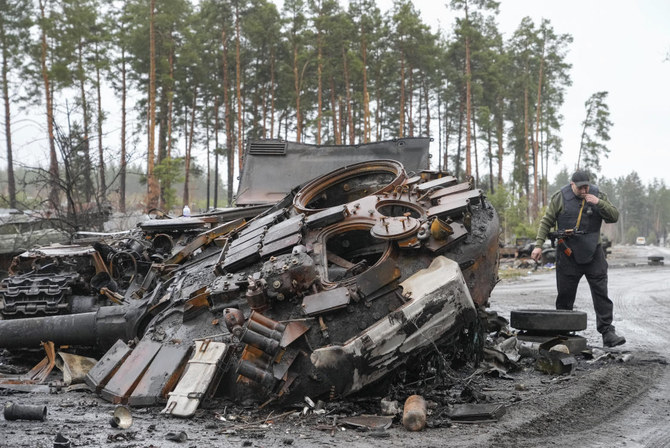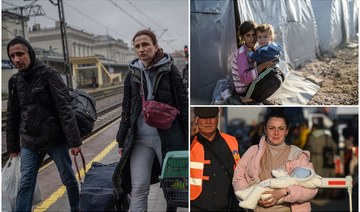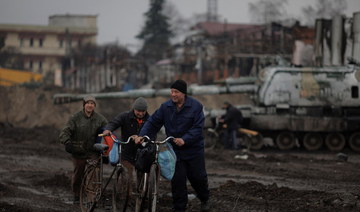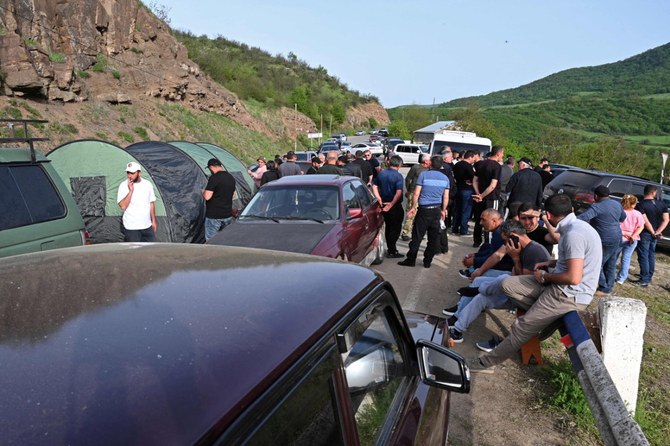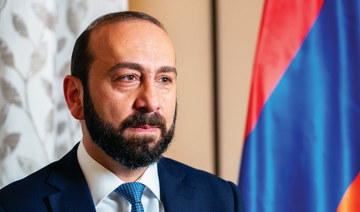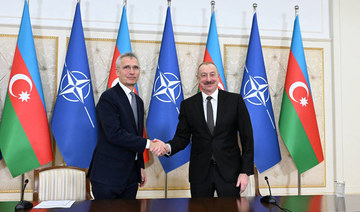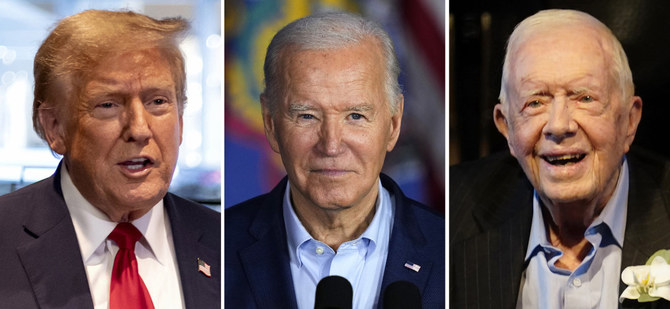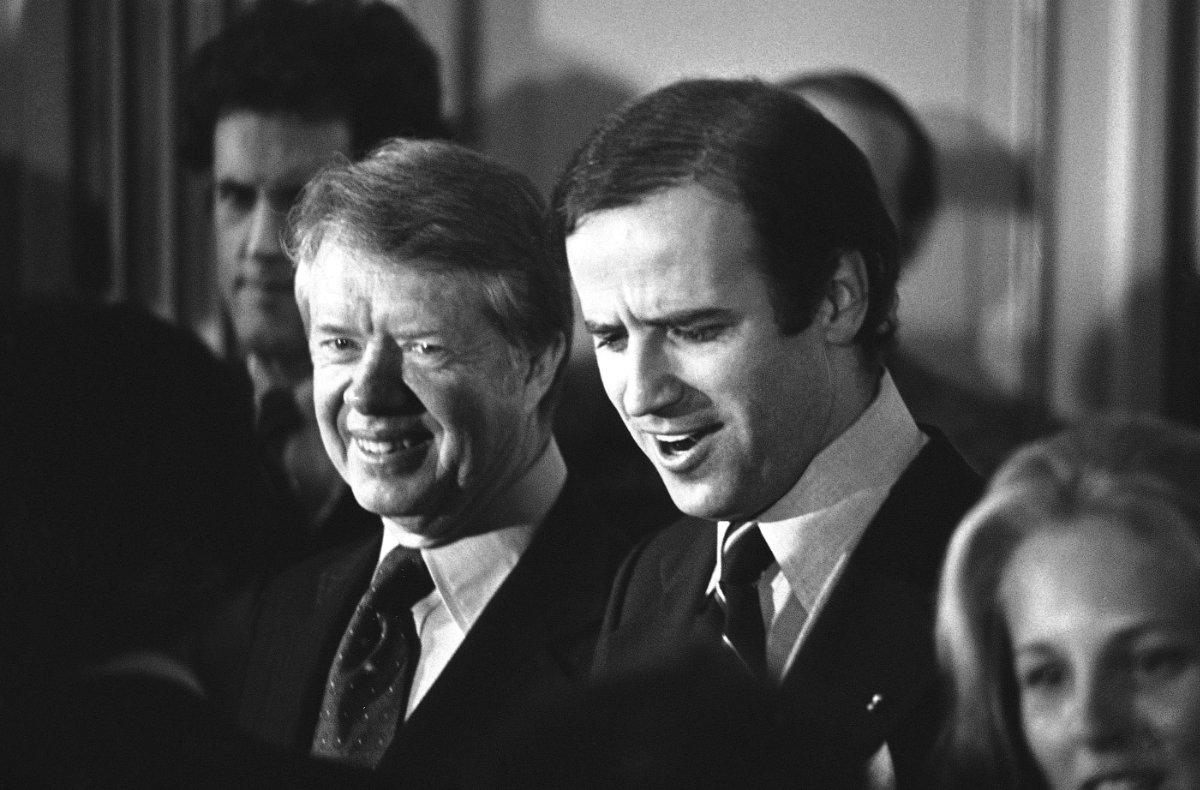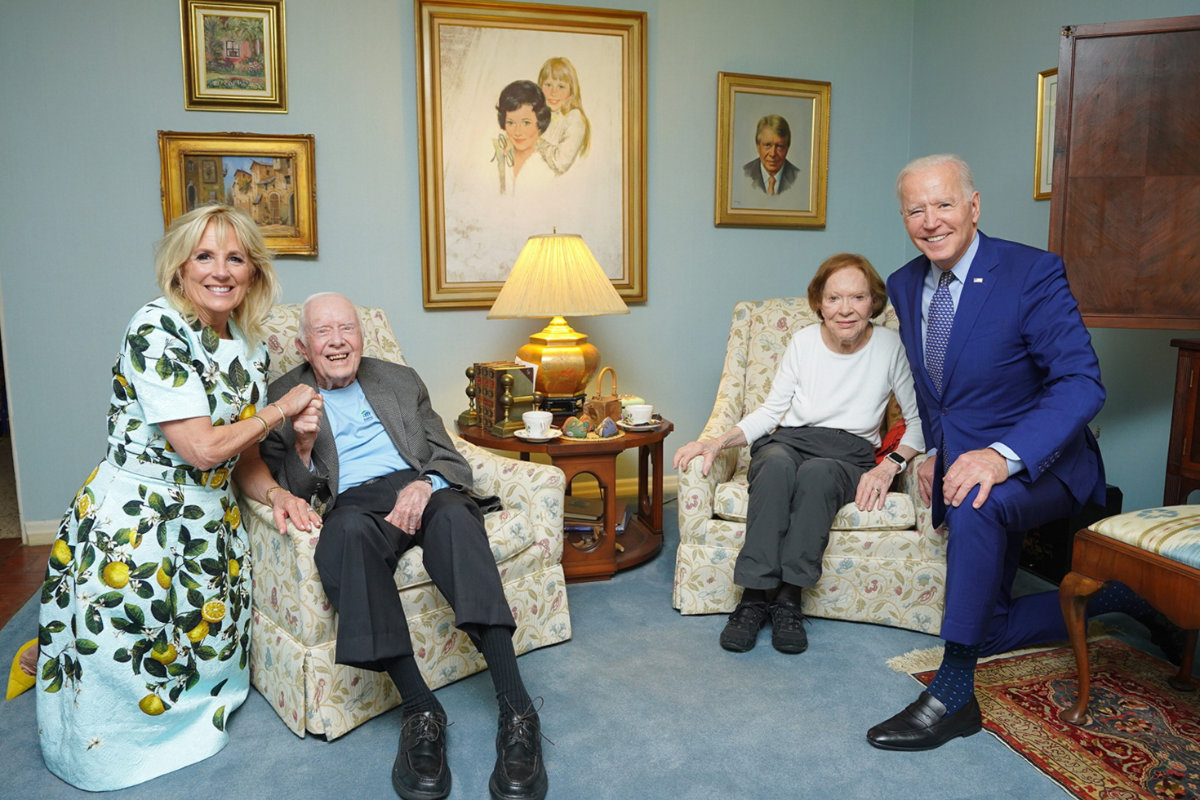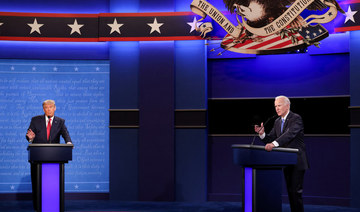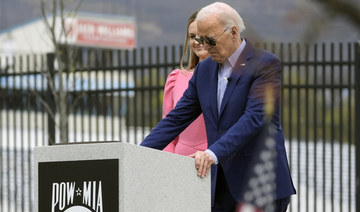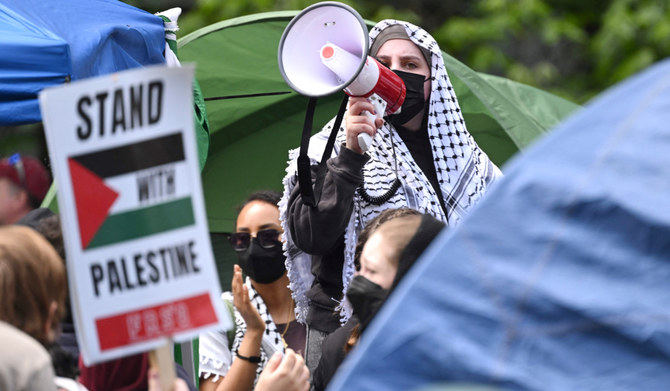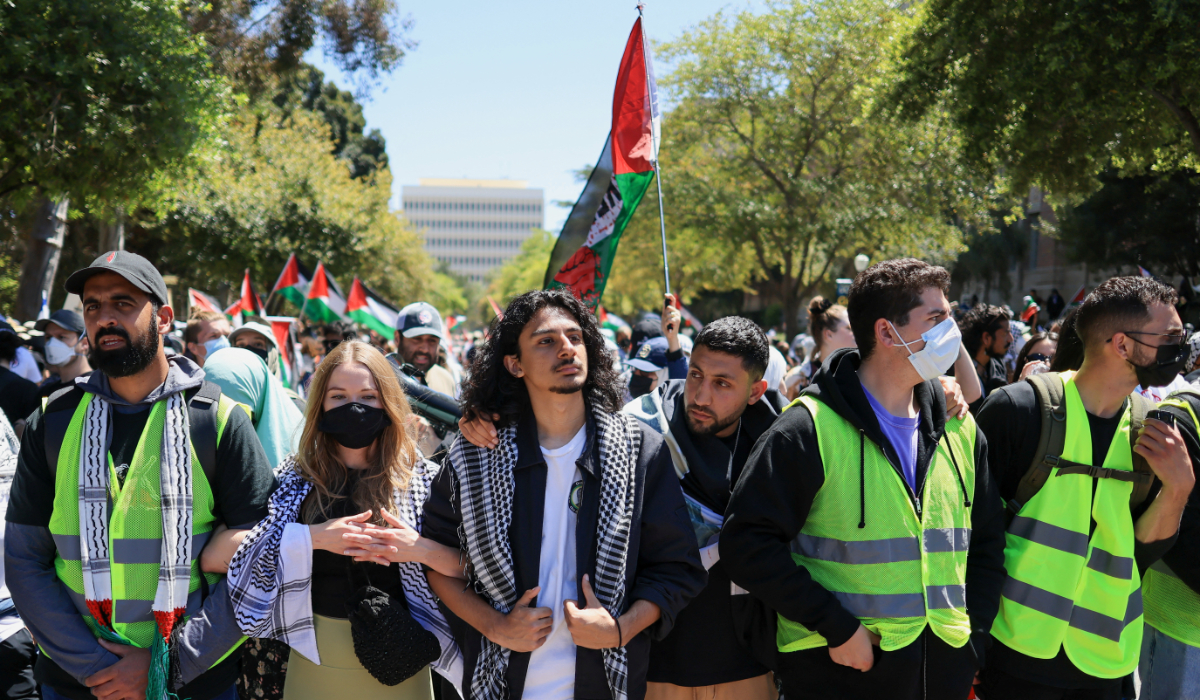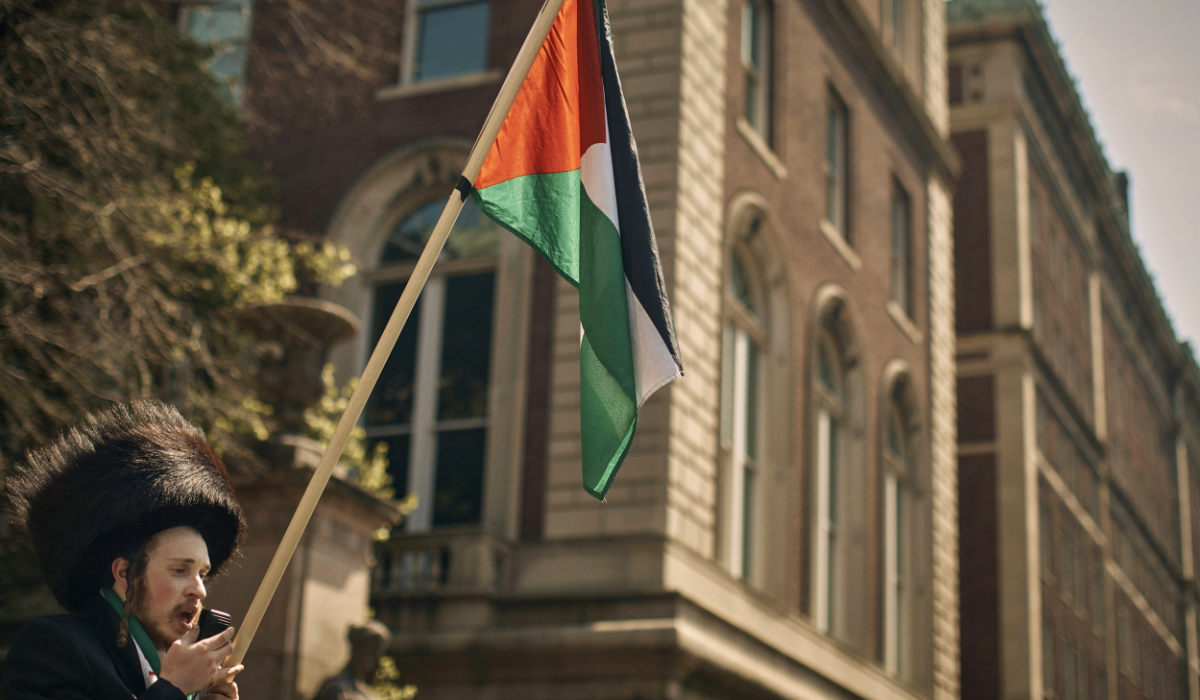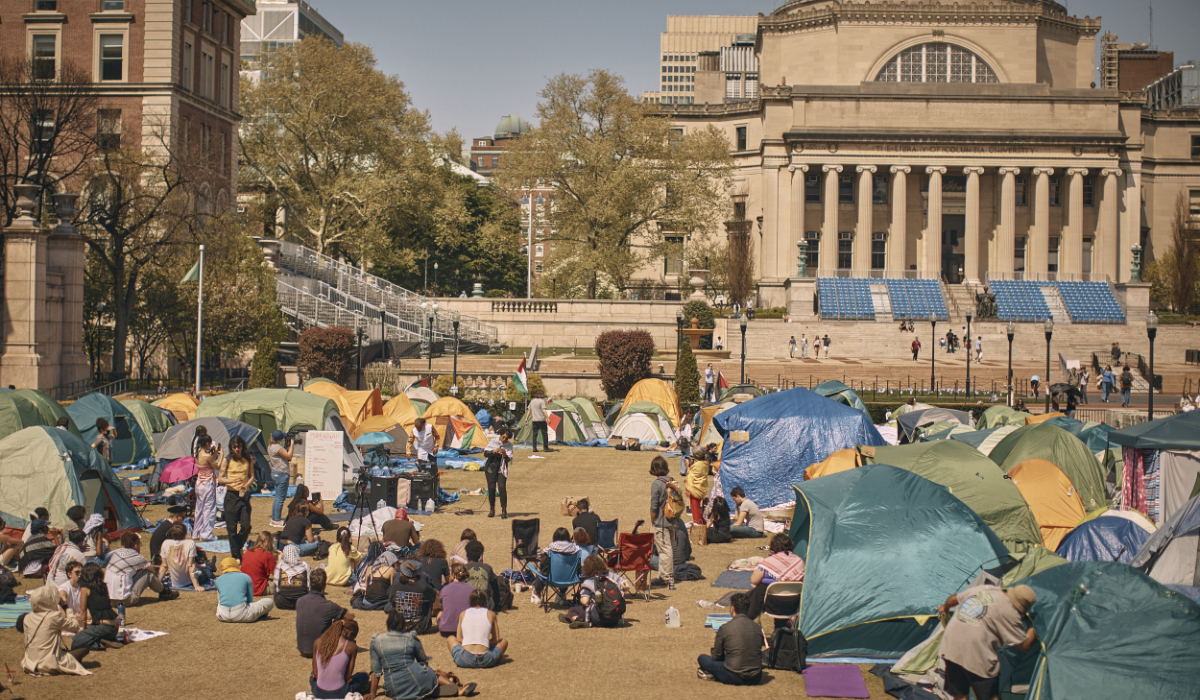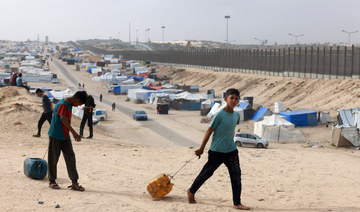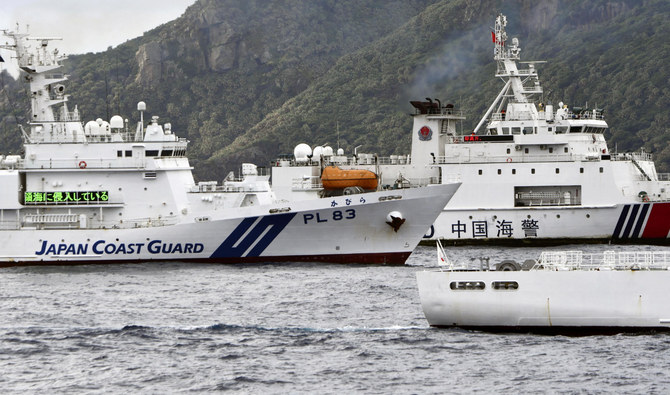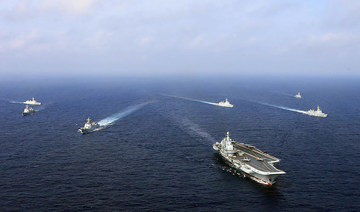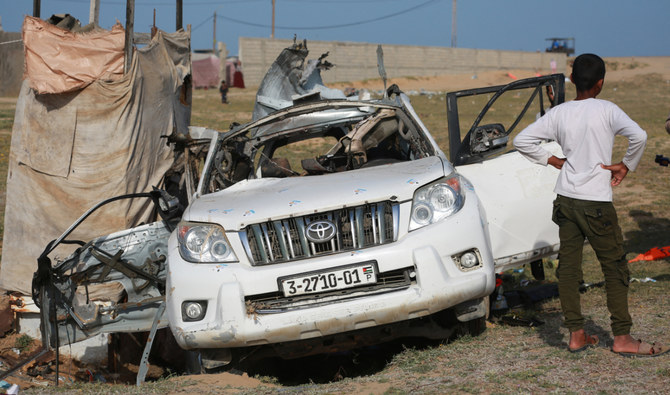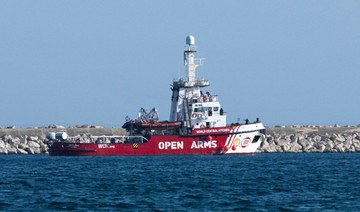KYIV: Ukrainian troops moved cautiously to retake territory north of the country’s capital on Saturday, using cables to pull the bodies of civilians off streets of one town out of fear that Russian forces may have left them booby-trapped.
Ukrainian President Volodymyr Zelensky warned that departing Russian troops were creating a “catastrophic” situation for civilians by leaving mines around homes, abandoned equipment and “even the bodies of those killed.” His claims could not be independently verified.
Associated Press journalists in Bucha, a suburb northwest of Kyiv, watched as Ukrainian soldiers backed by a column of tanks and other armored vehicles used cables to drag bodies off of a street from a distance. Locals said the dead — the AP counted at least six — were civilians killed without provocation by departing Russian soldiers.
“Those people were just walking and they shot them without any reason. Bang,” said a Bucha resident who declined to give his name citing safety reasons. “In the next neighborhood, Stekolka, it was even worse. They would shoot without asking any question.”
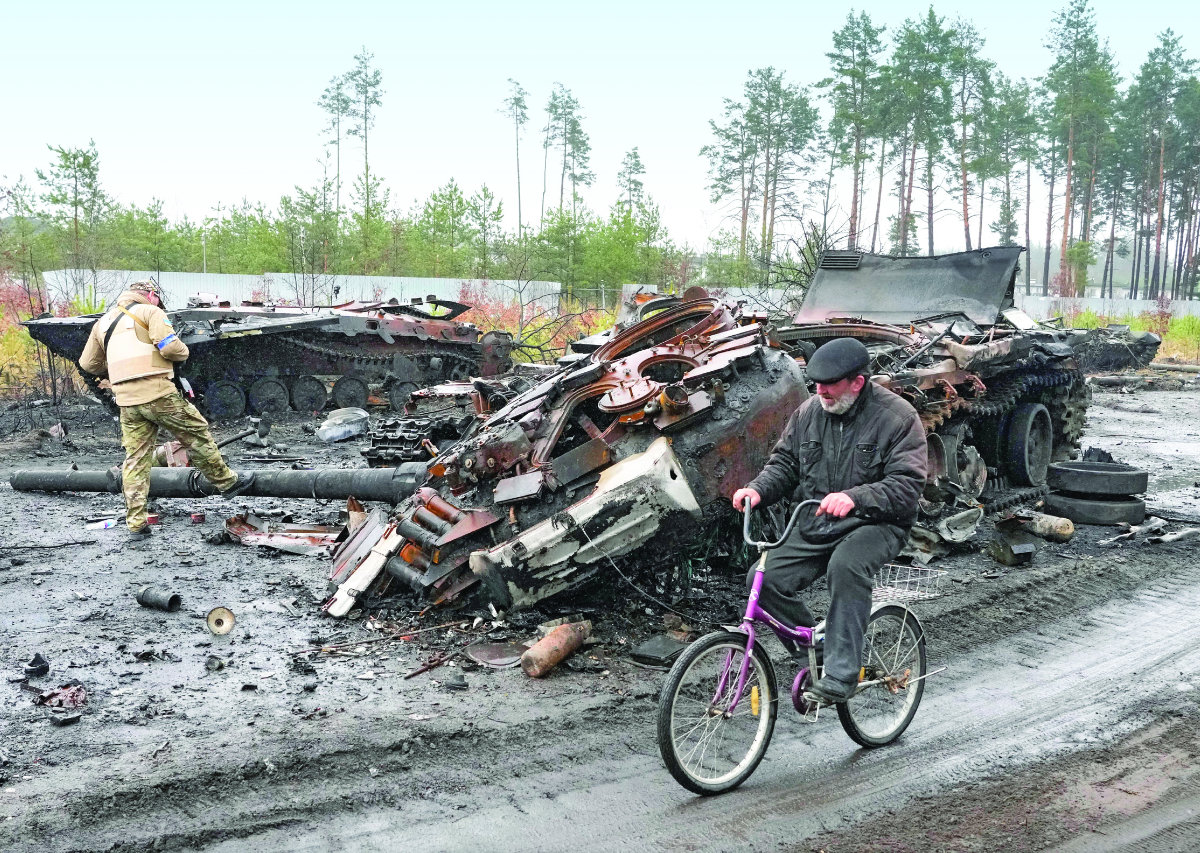
A Ukrainian biker passes by destroyed Russian tanks, in the village of Dmytrivka close to Kyiv on Saturday. (AP)
Ukraine and its Western allies reported mounting evidence of Russia withdrawing its forces from around Kyiv and building its troop strength in eastern Ukraine.
The visible shift did not mean the country faced a reprieve from more than five weeks of war or that the more than 4 million refugees who have fled Ukraine will return soon. Zelensky said he expects departed towns to endure missile and rocket strikes from afar and for the battle in the east to be intense.
“It’s still not possible to return to normal life, as it used to be, even at the territories that we are taking back after the fighting,” the president said.
Moscow’s focus on eastern Ukraine also kept the besieged southeastern city of Mariupol in the crosshairs. The port city on the Sea of Azov is located in the mostly Russian-speaking Donbas region, where Moscow-backed separatists have fought Ukrainian troops for eight years. Military analysts think Russian President Vladimir Putin is determined to capture the region after his forces failed to secure Kyiv and other major cities.
The International Committee of the Red Cross planned to try to get into Mariupol to evacuate residents after canceling the operation the previous day when it did not receive assurances the route was safe. Local authorities said Russian forces blocked access to the city. There was no word as of late Saturday whether the Red Cross managed to reach Mariupol.
An adviser to Zelensky, Oleksiy Arestovych, said in an interview with Russian lawyer and activist Mark Feygin that Russia and Ukraine had reached an agreement to allow 45 buses to drive to Mariupol to evacuate residents “in coming days.”
The Mariupol city council said earlier Saturday that 10 empty buses were headed to Berdyansk, a city 84 kilometers (52.2 miles) west of Mariupol, to pick up people who managed to get there on their own. About 2,000 made it out of Mariupol on Friday, some on buses and some in their own vehicles, city officials said.
Meanwhile, Ukraine’s deputy prime minister, Iryna Vereshchuk, said 765 Mariupol residents on Saturday used private vehicles to reach Zaporizhzhia, a city still under Ukrainian control that has served as the destination for other planned evacuations.
Among those escaping was Tamila Mazurenko, who said she fled Mariupol on Monday, made it to Berdyansk that night and then took a bus to Zaporizhzhia. Mazurenko said she waited for a bus until Friday, spending one night sleeping in a field.
“I have only one question: Why?” she said of her city’s ordeal. “We only lived as normal people. And our normal life was destroyed. And we lost everything. I don’t have any job, I can’t find my son.”
Mariupol has been surrounded by Russian forces for more than a month and suffered some of the war’s worst attacks, including on a maternity hospital and a theater that was sheltering civilians. Around 100,000 people are believed to remain in the city, down from a prewar population of 430,000, and they face dire shortages of water, food, fuel and medicine.
The city’s capture would give Moscow an unbroken land bridge from Russia to Crimea, which it seized from Ukraine in 2014. But its resistance also has taken on symbolic significance during Russia’s invasion, said Volodymyr Fesenko, head of the Ukrainian think tank Penta.
“Mariupol has become a symbol of Ukrainian resistance, and without its conquest, Putin cannot sit down at the negotiating table,” Fesenko said.
About 500 refugees from eastern Ukraine, including 99 children and 12 people with disabilities, arrived in the Russian city of Kazan by train overnight. Asked if he saw a chance to return home, Mariupol resident Artur Kirillov answered, “That’s unlikely, there is no city anymore.”
In towns and cities surrounding Kyiv, signs of fierce fighting were everywhere in the wake of the Russian redeployment. Destroyed armored vehicles from both armies lay in streets and fields along with scattered military gear.
Ukrainian troops were stationed at the entrance to Antonov Airport in suburb of Hostomel, demonstrating control of the runway that Russia tried to storm in the first days of the war.
Inside the compound, the Mriya, one of the biggest planes ever built, lay wrecked underneath a hangar pockmarked with holes from the February attack.
“The Russians couldn’t make one like it so they destroyed it,” said Oleksandr Merkushev, mayor of the Kyiv suburb of Irpin.
Irpin has seen some of the fiercest battles, and Merkushev said Russian troops “left behind them many bodies, many destroyed buildings, and they mined many places.”
A prominent Ukrainian photojournalist who went missing last month in a combat zone near the capital was found dead Friday in the Huta Mezhyhirska village north of Kyiv, the country’s prosecutor general’s office announced. The prosecutor general’s office attributed Maks Levin’s death to two gunshots allegedly fired by the Russian military and said an investigation was underway.
Elsewhere, at least three Russian ballistic missiles were fired late Friday at the Odesa region on the Black Sea, regional leader Maksim Marchenko said. The Ukrainian military said the Iskander missiles did not hit the critical infrastructure they targeted in Odesa, Ukraine’s largest port and the headquarters of its navy.
Ukraine’s state nuclear agency reported a series of blasts Saturday that injured four people in Enerhodar, a southeastern city that has been under Russian control since early March along with the nearby Zaporizhzhia Nuclear Power Plant. Ukraine’s human rights ombudsman said via Telegram that the four were badly burned when Russian troops fired light and noise grenades and mortars at a pro-Ukraine demonstration.
The head of Ukraine’s delegation in talks with Russia said Moscow’s negotiators informally agreed to most of a draft proposal discussed during face-to-face talks in Istanbul this week, but no written confirmation has been provided. However, Davyd Arakhamia said on Ukrainian TV that he hopes that draft is developed enough so that the two countries’ presidents can meet to discuss it.
'Savage war'
Meanwhile, Pope Francis on Saturday blasted Russia for launching a “savage” war in Ukraine and said he was considering a trip to Kyiv. Francis, who was visiting Malta, said “some potentate” had unleashed the threat of nuclear war on the world in an “infantile and destructive aggression” under the guise of “anachronist claims of nationalistic interests.”
The pope didn’t mention Putin by name Saturday, but his subject was clear enough.
On the outskirts of Kyiv, signs of fierce fighting were everywhere in the wake of the Russian redeployment. Destroyed armored vehicles from both armies left in streets and fields and scattered military gear covered the ground next to an abandoned Russian tank.
Ukrainian forces recaptured the city of Brovary, 20 kilometers east of the capital, Mayor Ihor Sapozhko said in a televised Friday night address. Shops were reopening and residents were returning but “still stand ready to defend” their city, he added.
“Russian occupants have now left practically all of the Brovary district,” Sapozhko said. “Tonight, (Ukrainian) armed forces will work to clear settlements of (remaining) occupants, military hardware, and possibly from mines.”
A prominent Ukrainian photojournalist who went missing last month in a combat zone near the capital was found dead Friday in the Huta Mezhyhirska village north of Kyiv, the country’s prosecutor general’s office announced. Levin, 40, worked as a photojournalist and videographer for many Ukrainian and international publications.
The prosecutor general’s office attributed his death to two gunshots allegedly fired by the Russian military, and it said an investigation was underway.
Elsewhere, at least three Russian ballistic missiles were fired late Friday at the Odesa region on the Black Sea, regional leader Maksim Marchenko said. The Ukrainian military said the Iskander missiles did not hit the critical infrastructure they targeted in Odesa, Ukraine’s largest port and the headquarters of its navy.
Ukraine’s state nuclear agency reported a series of blasts Saturday that injured four people in Enerhodar, a city in southeastern Ukraine that has been under Russian control since early March along with the nearby Zaporizhzhia Nuclear Power Plant.
Ukrainian officials also reported that the death toll from a Russian rocket strike Tuesday on a government building in Mykolaiv, a port city east of Odesa, had risen to 33, with a further 34 people wounded. The confirmed death toll has risen steadily as the search and rescue operation continues.
As the war dragged on, the US Defense Department said Friday night it is providing an additional $300 million in arms to Ukrainian forces, including laser-guided rocket systems, unmanned aircraft, armored vehicles, night vision devices and ammunition. Also included are medical supplies, field equipment and spare parts.
There was no immediate word Saturday on the latest round of talks between Russian and Ukrainian negotiators, which took place Friday by video. During a round of talks earlier in the week, Ukraine said it would be willing to abandon a bid to join NATO and declare itself neutral — Moscow’s chief demand — in return for security guarantees from several other countries.
On Friday, the Kremlin accused Ukraine of launching a helicopter attack on a fuel depot on Russian soil.
Ukraine denied responsibility for the fiery blast at the civilian oil storage facility on the outskirts of the city of Belgorod, about 25 kilometers (16 miles) from the Ukraine border. If Moscow’s claim is confirmed, it would be the war’s first known attack in which Ukrainian aircraft penetrated Russian airspace.
Oleksiy Danilov, secretary of Ukraine’s national security council, said on Ukrainian television: “For some reason they say that we did it, but in fact this does not correspond with reality.” Later, in an interview with American TV channel Fox News, Zelensky refused to say whether Ukraine was behind the attack.



